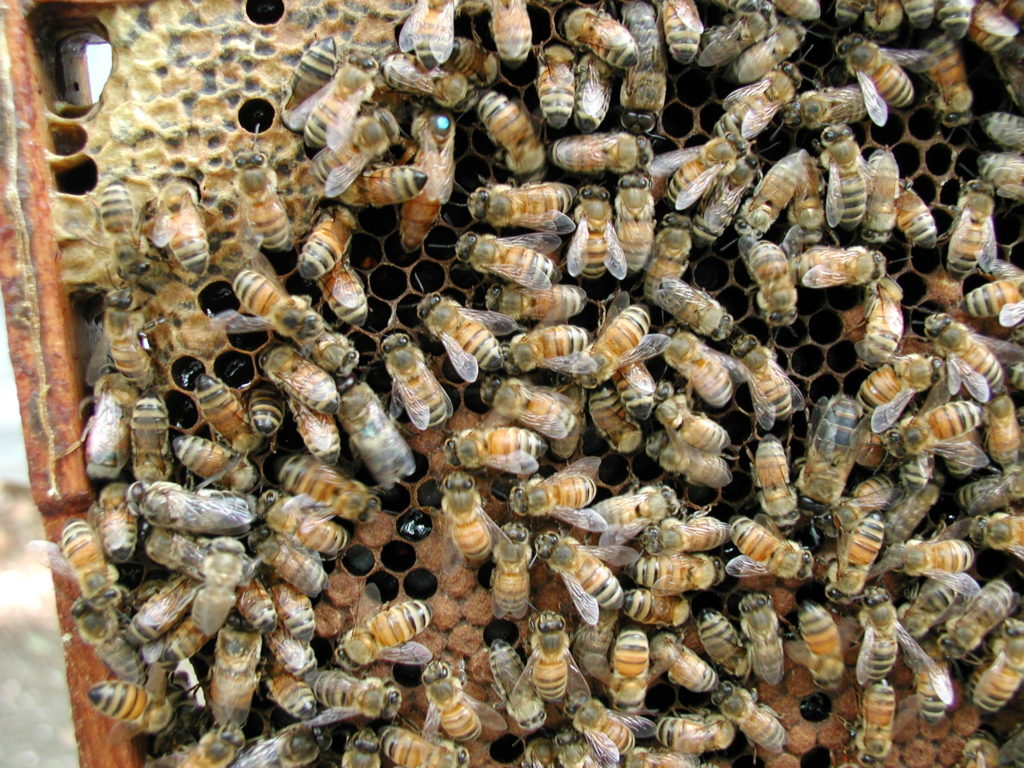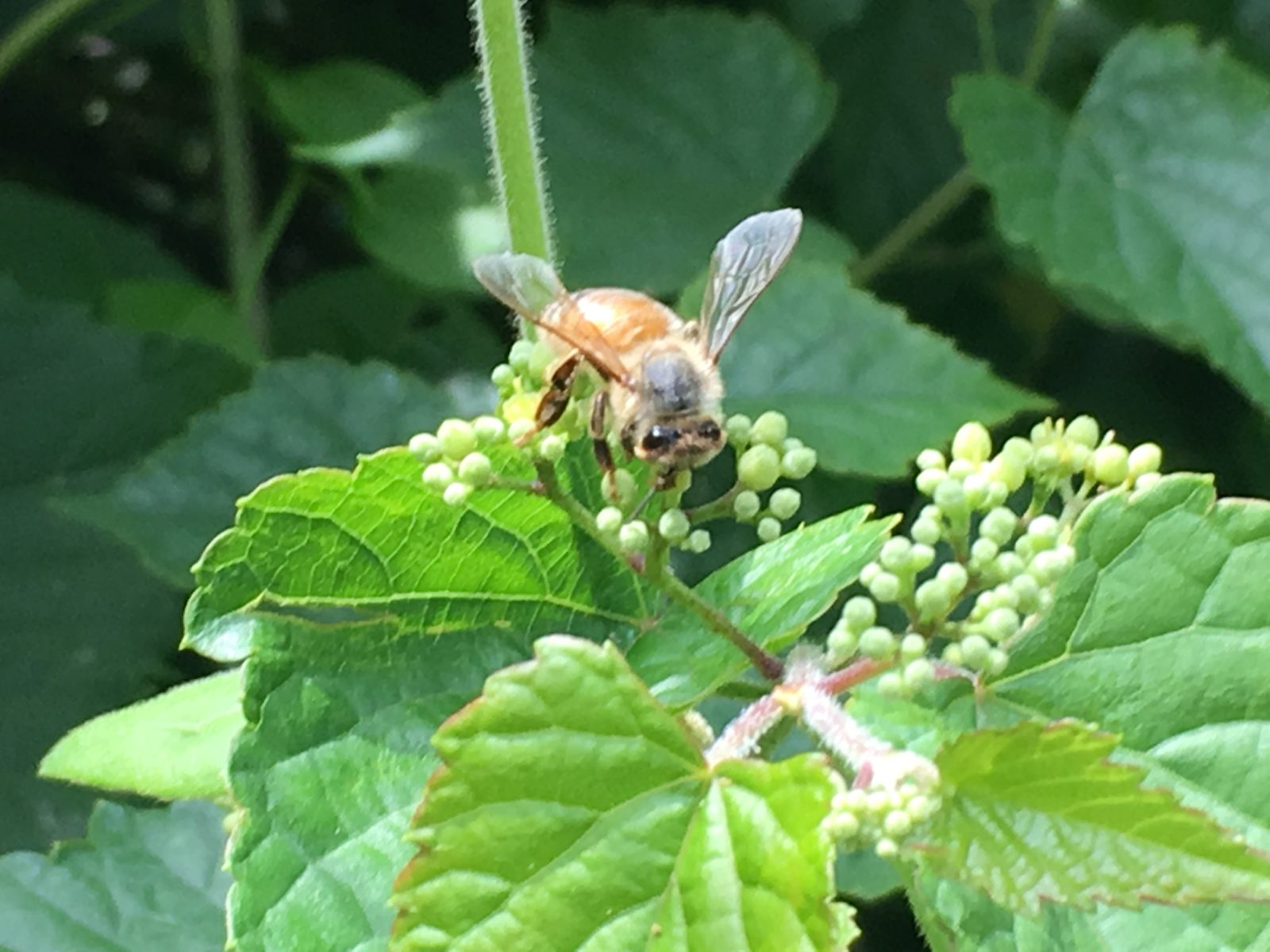Samantha Boyd is a lifelong resident of Northport with a degree in Veterinary Science. She works as a vet tech in the Oncology Department of a Long Island Animal hospital. Samantha administers chemotherapy to people’s beloved pets. Samantha is a huge animal lover, rescuing and helping any kind of animal she can. In addition, her love for gardening is second to her love for animals.
Neal Wechsler transplanted himself from Monticello, New York to Long Island for college and never left. Neal is a licensed Architect with his own practice. He is adventurous and loves being outdoors immersed in nature.
Beekeeping Made Perfect Sense
Since Samantha and Neal spent a lot of time outside and in the garden, they noticed that there were not any honeybees in their garden. They had been listening and reading about all the challenges that honeybees were facing. So they decided to take action and do something to help. They figured that with more bees in more places it would have an impact on the honeybee situation. In 2010, they signed up and took monthly classes with a Master Beekeeper who has since retired and moved. They started beekeeping with just one beehive.
How BeeWitched Bee Came to Be…
Neal and Samantha soon realized that having 1 or 2 hives in the yard wasn’t going to do much to help the honeybee population on Long Island. They developed a passion for the bees and their small hobby had turned into their cause. They currently have beehives in several locations including Hobbs Farm and HeartBeet Farms. And they continue to look for additional locations to place more hives across Long Island.
Neal and Samantha are both very spiritual people as well as naturalists. Before they became beekeepers, they both embraced homeopathic and naturally alternative ways of healing and maintaining good health. As they became more educated about the bees, they also become more educated about the products the bees make and their benefits.
Their mission is to educate people about both the importance of honeybees as well as teach them about the health benefits of the products the bees produce. By doing this, they might be able to influence the way people think about the environment around them and how their behaviors impact the bees.
The Life of a HoneyBee

- Only worker bees (females) produce all the honey and perform all the required work for the survival of the colony. Only female bees have stingers.
- Bees only live about six weeks during periods of honey production. Only flying to forage nectar and pollen for about 3 weeks. Pollen is their source of protein and nectar which they make into honey is their source of carbohydrates.
- Honeybees will fly up to a 3 mile radius from their colony.
- One honeybee produces approximately 1/12 of a teaspoon of honey during her entire life.
- Combined Honeybees travel 55,000 miles visiting two million flowers to produce one pound of honey.
- Bees do what is called a “waggle dance” to communicate to other bees in the colony where there is a good source of nectar or pollen.
- A colony at full strength during a nectar flow could contain as many as 50-75,000 bees.
- It takes 768 bees their entire lives to create one pound of honey.
- Bees flap their wings at a rate of 190 times per second, which creates the “buzz” sound, and can fly at a speed of 15 miles per hour.
Why Eat Local Honey
- Approximately 1/3 of all the food we eat needs to be pollenated.
- Honeybees are the only insect that produce food humans consume.
- Honey never spoils and was found in the Egyptian pyramids.
- Honey has many medicinal properties, speeds the healing process and combats infection.
- Records have been found that stated Honey was used by many ancient civilizations for medicinal purposes.
- Although there has been no formal medical study done many people find that taking 1 teaspoon of local honey per day, which contains pollen, helps them in the relief of seasonal allergies.
- Local honey contains all the substances necessary to sustain life.
- Although honey is wonderful in tea, to take full advantage of all its health benefits honey should also be consumed in an unheated manner.
BeeWitched Bee offers raw local honey from their Long Island beehives and infused honey. They offer several infused honey flavors including lavender, dark chocolate, ginger, lemon and rose. In addition, BeeWitched Bee also offers honey lip balms and perfumes. As with vegetables, always seek out local honey options. Local options always provide optimal nutrition. To experience honey from our farm, visit our farm stands, chocolate & honey kiosks or order honey online.
